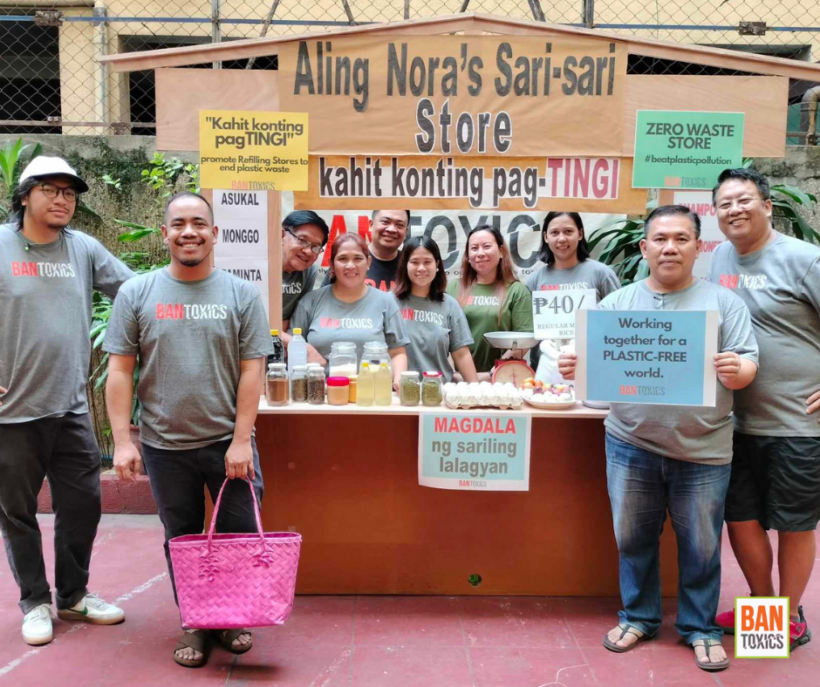In celebration of International Plastic Bag Free Day, environmental group BAN Toxics heightens its call to promote plastic-free sari-sari stores to reduce plastic waste in the country.
The group presented a mock sari-sari store with the signage “Kahit konting pagTINGI” to emphasize the importance of “refilling” in small quantities. With the “Kahit konting pagTINGI” campaign, BAN Toxics would like to demonstrate that the Filipino Tingi-tingi culture can be plastic-free as practiced in our communities for many years.
“BAN Toxics promotes the practice of “Tingi-tingi” with the mindful concept of refilling. Refilling as a business model is going to be a changemaker of our time, yet again. It has been tested by a number of social enterprises that also share the mission to help address plastic pollution. What is needed is the full support of our leaders to reintroduce refilling, reuse, and other alternative systems in our communities. Our call is for our stakeholders to look toward to a plastics-free future and explore accessible alternatives such as these, especially with the Global Plastics Treaty on the horizon.” said Rey San Juan, BAN Toxics Executive Director.
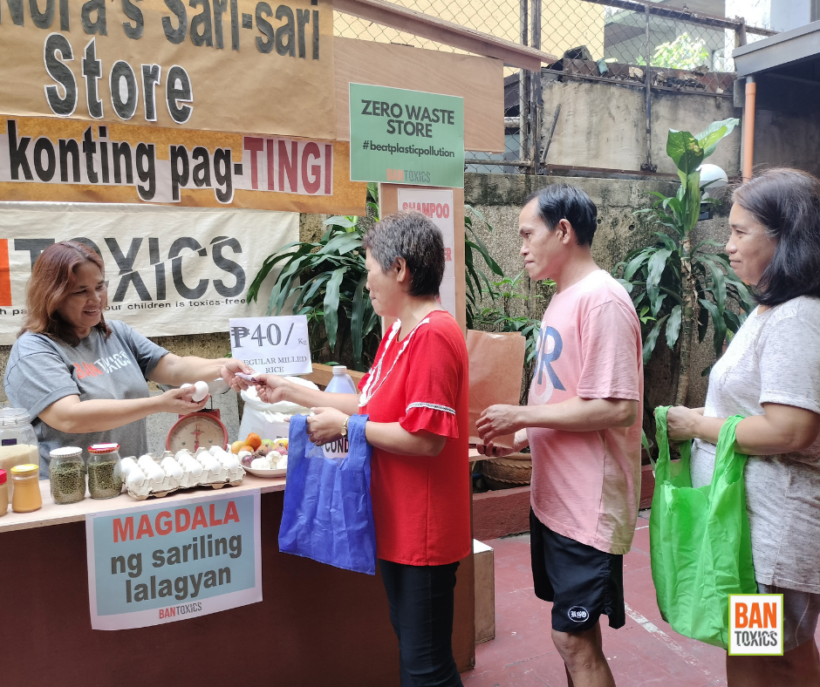
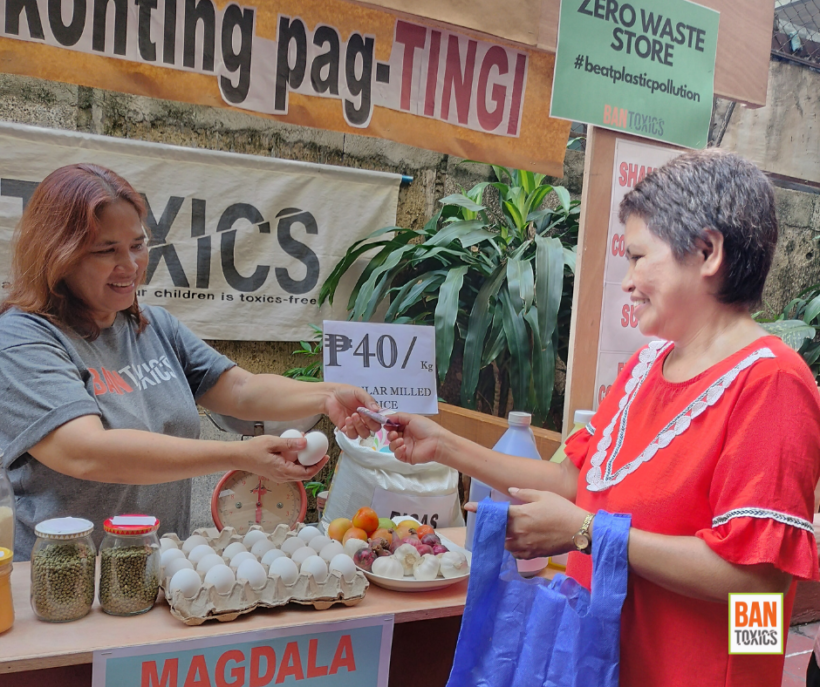
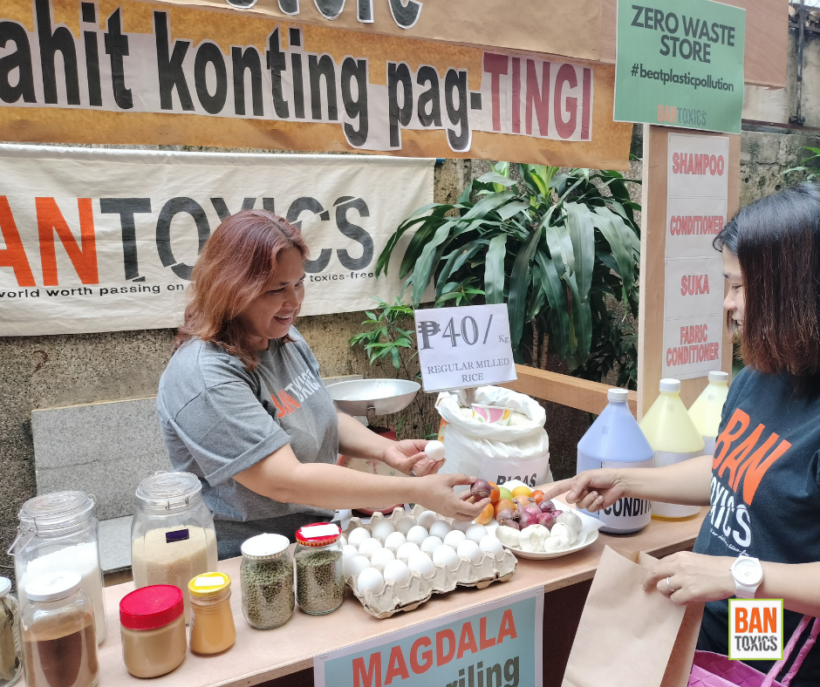
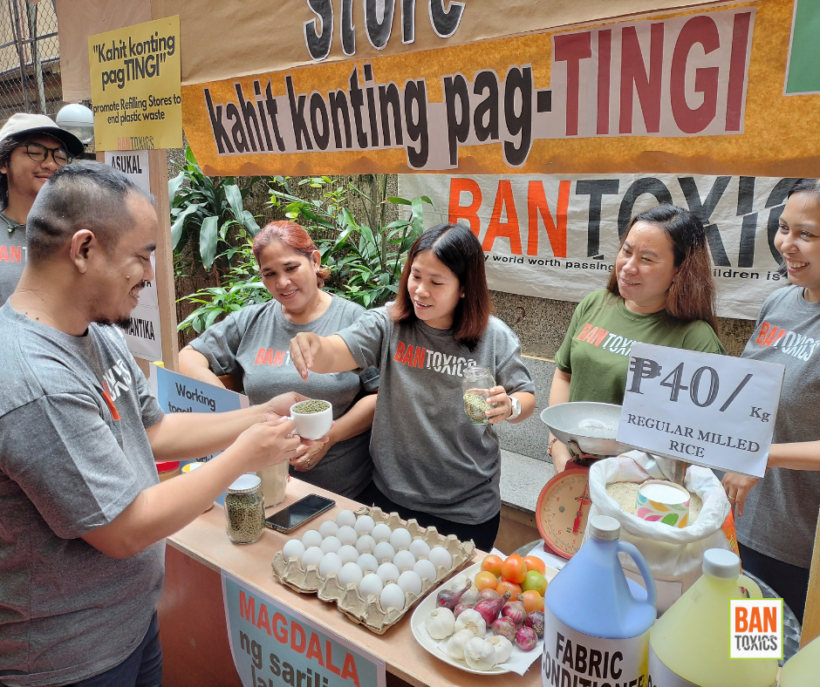
“Urgent action is needed to reduce the impact of plastic packaging waste on the environment. We also call on the industry, supply chains, and retail stores to seriously invest and work together to start establishing plastic-free “refilling” stores to minimize the use of plastic packaging and contribute to beating plastic pollution,” San Juan added.
According to the World Bank, the Philippines generates 2.7 million tons of plastic waste annually with only about 28% of the key resins consumed in 2019 being recycled. The country is also known for being a ‘sachet economy’ using 163 million plastic sachet packets, 48 million shopping bags, and 45 million thin film bags daily as revealed in the 2019 study by the Global Alliance for Incinerator Alternatives (GAIA).
The group further promotes “Zero Waste” as a basic approach to minimizing waste production especially “plastic waste” through the principle of reduce, reuse, and recycle practices starting at the community level.
“We want to curb the consumption of single-use plastics (SUPs) and sachets and promote ‘reuse’ among consumers and shoppers. A radical change in shopping habits requires shifting to sustainable packaging alternatives.” BAN Toxics believes in incentivizing the replacement of single-use products and packaging in favor of reusable alternatives and innovative delivery systems.”
“Awareness raising among individuals cannot do the job alone. Businesses must invest in sustainability efforts and make a difference in changing consumers’ buying behaviors. The concept of refilling stations and zero-waste stores requires no plastic packaging and promotes the use of reusable containers to store purchased items,” the group said.
A sari-sari store, anglicized as a neighborhood sundry store, is a convenience store found in the Philippines. The word sari-sari is Tagalog meaning “variety” or “sundry”. (source: Wikipedia)
“Tingi” refers to: that which is selling or sold at retail. (source: www.tagalogtranslate.com)


